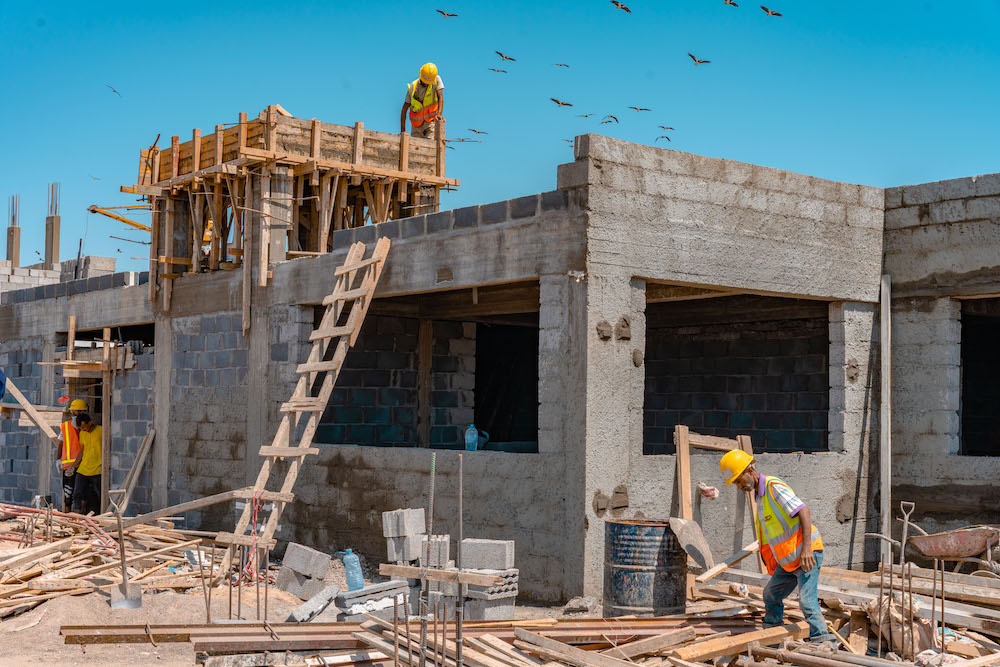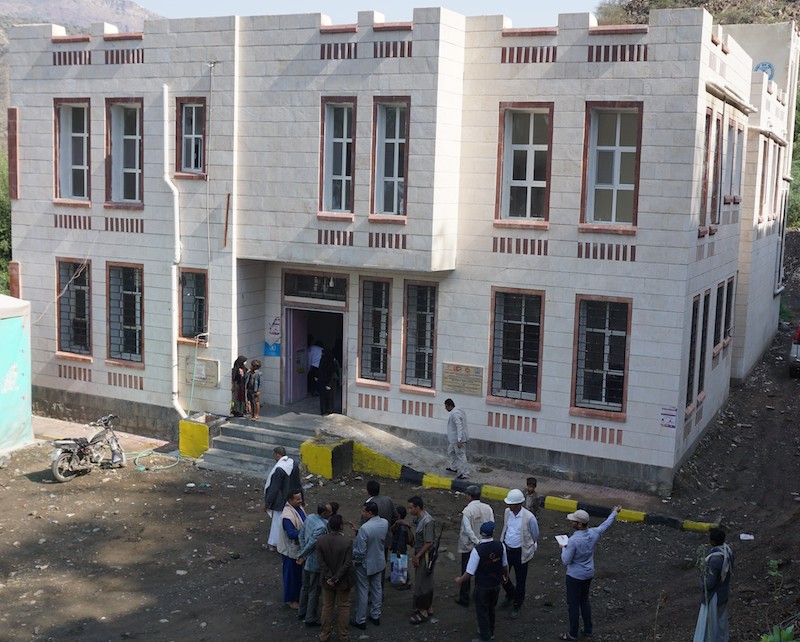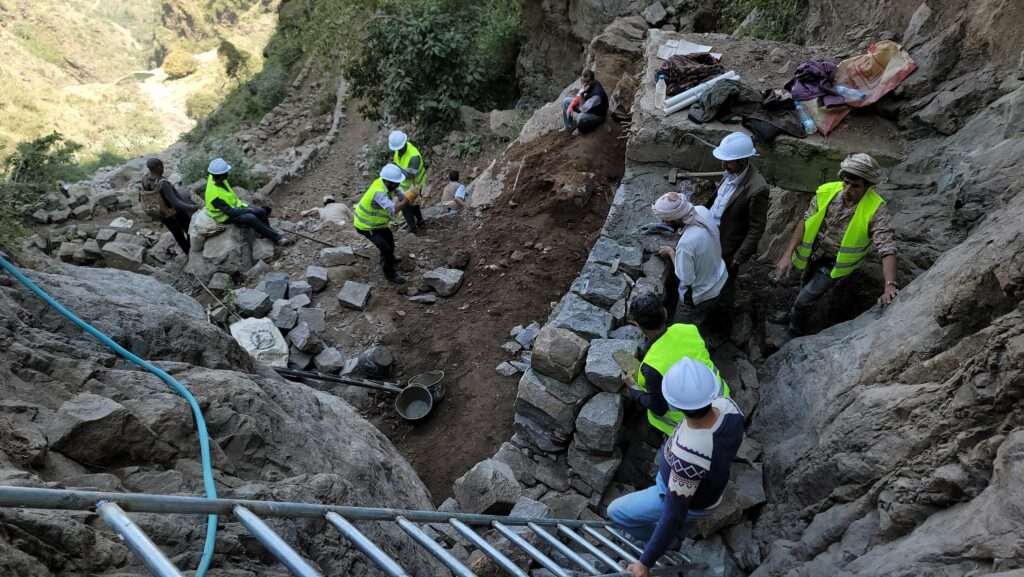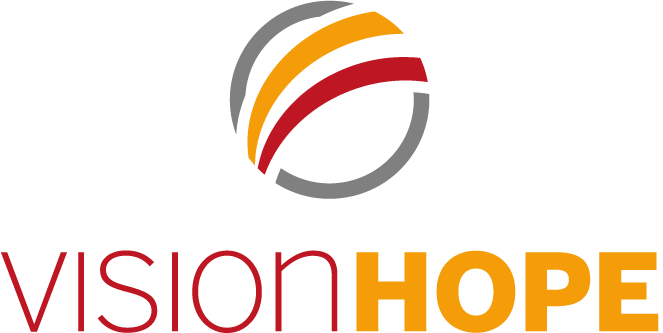Nexus Projects
Civil society empowerment through community capacity building
Sustainable development cannot exist without resilience, peace, and security. In Yemen, Vision Hope is partnering with government agencies and the Yemeni NGOs BFD and SSFD to implement a cross-sectoral program focused on community capacity building and civil society empowerment. This initiative aims to rebuild the economy and infrastructure while helping the population recover from crises, particularly in rural districts in North and South Yemen. In a second phase, local structures will be strengthened to sustainably promote self-determined, peaceful coexistence in the communities. Additionally, programs are being implemented in which vulnerable households receive cash assistance and contribute to infrastructure development through “cash-for-work” programs.
Strengthening capacities and rebuilding infrastructure - Phase I
Project: Livelihood, Development, Cooperation and Peace (LDCP)
Approach: Development
Donor: BMZ
Local partners: SSFD and BFD
Budget: 10,000,000 EUR
Beneficiaries: 500,000
Duration: 2021-2024
Output 1: Strengthen local civil society structures and capacities
The community capacity building component aims to empower communities and local structures to serve as the voice of the people and promote development.
In 2022 and 2023, capacity building initiatives were designed to enhance civil society participation and empower communities in decision-making processes. These efforts are vital for civil society empowerment, establishing community structures such as steering committees, District Integrated Development Committees (D-IDCs), and Community Development Committees (CDCs) to oversee project implementation, foster collaboration, and manage post-implementation activities.
Notable outcomes include conducting meetings, defining project criteria, and resolving conflicts. Workshops for stakeholders covered topics like financial management, state-society relations, women’s empowerment, and local governance. Training sessions improved skills, promoted transparency, and enhanced community capacity building efforts for peacebuilding. Mentoring programs offered personalized support, while knowledge-sharing activities facilitated learning and collaboration. These initiatives were crucial for civil society empowerment and fostering sustainable development.
Facts
- 2 Steering Committees, 8 D-IDCs, and 42 CDCs were established.
- 4 meetings of the Project Steering Committee, 93 D-IDC meetings and 28 CDC meetings were held.
- 24 women’s workshops were implemented across 8 districts, training 262 women on topics such as women empowerment and sustainable development.
- 32 workshops were organized providing training to 248 local authority staff members.

Output 2: Peacebuilding and social cohesion through art and culture.
By leveraging art and culture as tools for peacebuilding, the project has made significant progress in promoting peaceful coexistence in Yemen. The Yemen Art Base platform was launched, providing training to 5 members. Additionally, we’ve trained 300 students and women on a peace-based drawing guide and distributed starter packs. Drawing competitions, art exhibitions, and thematic workshops engage diverse stakeholders in dialogue on issues like sustainable energy, agriculture, and reconstruction. These initiatives have contributed to building bridges, promoting peace, and fostering community capacity building in Yemen.

Facts
- Launch of the Yemen Art Base platform by Yemeni artists.
- Training provided to 5 members of the Yemen Art Base
- Training conducted for 300 students and women on the peace-based drawing guide.
- Distribution of 300 starter packs containing drawing and art materials.
- Organization of 7 thematic workshops across 4 districts, with 28 participants each.
Output 3: Improving livelihoods and strengthening resilience - agriculture.
In 2023, significant strides were made in agricultural infrastructure across various regions.
Construction of a diversion barrier (weir) and open canals to irrigate agricultural lands in the Jazol area
Budget: 195,000 Euro
Beneficiaries: 1,306
Construction of a diversion barrier (weir) and open canals to irrigate agricultural lands in the Al Nasria area
Budget: 207,000 Euro
Beneficiaries: 606
Construction of a dam with a water storage capacity of 179,000 cubic meters, to irrigate 60 hectares of agricultural land and to provide water for 36 villages in the Haydan District
Budget: 605,408 Euro
Beneficiaries: 12,040
Construction of a retaining wall to protect agricultural lands in Kadan Al Malaha, Wadi Faqeer
Budget: 76,000 Euro
Beneficiaries: 353
Building an agricultural nursery, rehabilitating the well, constructing a tower water tank, implementing a solar-powered pumping system in the Al-Munairah District
Budget: 111,635 Euro
Beneficiaries: 1,457
These initiatives directly benefited 21,900 smallholder farmers, enhancing agricultural productivity and resilience in the respective regions, contributing to civil society empowerment.

Output 4: Reconstruction of basic infrastructure and services.
Health Sector:
Significant progress was also made in the health sector across various districts. Key achievements included the rehabilitation and expansion of six health facilities, enhancing their capacity to serve communities. These efforts directly benefited over 308,000 people, providing essential secondary healthcare services in their respective districts. Moreover, these initiatives have significantly bolstered civil society empowerment by involving local stakeholders in the planning and management of these projects.
Rehabilitation and Expansion of Al-Munairah Rural Hospital, Al-Hudaydah Governorate.
Budget: 177,035 Euro
Beneficiaries: 61,000
Rehabilitation and Expansion of Sharas Health Center, Hajjah Governorate.
Budget: 110,590 Euro
Beneficiaries: 37,000
Rehabilitation and Expansion of Bani Sa’ad Rural Hospital, Al-Mahweet Governorate.
Budget: 245,962 Euro
Beneficiaries: 97,450
Rehabilitation of the Al-Musaymir rural hospital, Lahj Governorate.
Installing a solar energy system for its Fighting Malaria Center.
Budget: 117,500 Euro
Beneficiaries: 48,000
Expansion and Rehabilitation of Hareeb Al-Qarameesh Rural Hospital, Marib Governorate.
Budget: 152,677 Euro
Beneficiaries: 50,000
Installing a solar energy system for the Al-Faqid Al-Shathili Hospital and rehabilitation of the electrical works.
Budget: 108,158 Euro
Beneficiaries: 15,000

Education Sector:
The construction and rehabilitation of 10 schools, benefiting in total 1,693 girls and 2,618 boys, was implemented during the cumulative period of the project from 2021 to 2023. These educational infrastructure projects were crucial in promoting community capacity building by improving access to quality education and empowering local communities to take charge of their children’s futures.
Construction/Rehabilitation Al-Tadamon School, Sa’ada Governorate
Budget: 217,897 Euro
Beneficiaries: 1,019
Construction/Rehabilitation Khaled Ibn Al-Walid School, Sa’ada Governorate
Budget: 97,997 Euro
Beneficiaries: 417
Construction of the Al-Sayyida Zeinab School, Al-Mahweet Governorate
Budget: 104,871 Euro
Beneficiaries: 119
Construction of the 26th September School, Al-Mahweet Governorate
Budget: 107,750 Euro
Beneficiaries: 177
Construction/Rehabilitation Al Majd School, Hajjah Governorate
Budget: 59,228 Euro
Beneficiaries: 126
Construction/Rehabilitation Al Mithaq School, Hajjah Governorate
Budget: 73,277 Euro
Beneficiaries: 218
Rehabilitation of the Al-Faqeed Al-Bity School,
Provision of a solar energy system to the Bilal Bin Rabah School and Al-Faruq School, Hadramout Governorate
Budget: 128,153 Euro
Beneficiaries: 1,150
Rehabilitation of the Musabeen School, Aden Governorate
Budget: 37,615 Euro
Beneficiaries: 1,085

Water Sector:
The Water Projects in the Al Hudaydah and Hajjah governorates focus on developing efficient and sustainable water supply systems, ensuring 20,708 beneficiaries have access to clean and safe drinking water. In 2023, 8 water supply systems for drinking and domestic use were constructed and rehabilitated, including construction of tower tanks, reinforced cisterns, and solar-powered pumping systems. These efforts covered 7.83 km of water networks, drilled 2 artesian wells, and installed 285 solar modules, providing sustainable access to clean water.
Deir Al-Sharanban Water Project
Budget: 65,741 Euro
Beneficiaries: 1,480
Deir Al-Moathen Water Project
Budget: 71,176 Euro
Beneficiaries: 1,651
Deir Al-Ma’arof Water Project
Budget: 33,359 Euro
Beneficiaries: 1,475
Deir Hunainah Water Project
Budget: 79,542 Euro
Beneficiaries: 1,512
Al-Raqqa Water Project
Budget: 249,100 Euro
Beneficiaries: 5,000
Water scheme of the Habeel Hanash area
Budget: 276,781 Euro
Beneficiaries: 4,000
Rehabilitation of the water scheme of the Jazol area
Budget: 100,000 Euro
Beneficiaries: 2,953
Rehabilitation of the water scheme of the Muhmmadah area
Budget: 158,000 Euro
Beneficiaries: 2,637

Strengthening capacities and rebuilding infrastructure - Phase II
Project: Improvement of livelihood and resilience strengthening for vulnerable populations of three districts in Yemen
Approach: Development
Donor: BMZ
Budget: 5,556,000 EUR
Beneficiaries: 125,681
Duration: 2024-2027
The project, implemented in the governorates of Taiz and Al Hudaydah in the north and south of Yemen, aims to improve the resilience and well-being of the affected communities through a combination of emergency assistance, capacity building, and long-term development promotion. These regions are marked by conflict, socioeconomic instability, and severe food insecurity, with women, children, people with disabilities, and other marginalized groups being particularly vulnerable. A key focus of the project is on community capacity building and civil society empowerment, which are essential for fostering local ownership and ensuring the sustainability of the initiatives.
To achieve its goals, the project employs a multi-phase approach. The first phase focuses on providing emergency relief, while subsequent phases emphasize capacity building, securing livelihoods, and strengthening resilience. The inclusion of women, people with disabilities, and other marginalized groups is a central component of the strategy to promote equality and ensure sustainable community development. By prioritizing community capacity building and civil society empowerment, the project aims to create a more resilient and self-sufficient society.
By combining emergency assistance, capacity building, and long-term development strategies, the project contributes to reducing humanitarian needs and strengthening social cohesion in the affected regions. The emphasis on community capacity building ensures that the local population is actively involved in the development process, thereby enhancing civil society empowerment and long-term sustainability.
Specific goals and measures:
Peacebuilding and Conflict Resolution:
Communities will be empowered to resolve local conflicts peacefully and independently. Mediators (60% men and 40% women) will be trained to implement conflict resolution initiatives. Art will be used to promote social cohesion by supporting and fostering local art initiatives, contributing to civil society empowerment.
Reconstruction and Improvement of Basic Infrastructure to Ensure Long-Term Population Supply:
Infrastructure, such as water supply and sewage systems, will be restored and expanded, incorporating renewable energy sources. Communities will be empowered to actively participate in the planning, implementation, and maintenance of infrastructure projects through focused community capacity building.
Sustainable Improvement of Income and Food Security:
3,024 individuals will receive cash assistance through “Cash-for-Work” programs. 756 female and 840 male small-scale farmers will be trained in modern agricultural methods to improve productivity and income in the long term.
Expansion and Establishment of Disaster Preparedness and Management:
12 individuals will be trained in disaster preparedness. Awareness campaigns and structural prevention measures will be used to reduce disaster risk in high-risk areas, further contributing to community capacity building.

Community capacity building in Al Qarn Village
Project: Integrated intervention in Al Qarn Village to improve food security and WASH
Approach: Rehabilitation
Donor: WFP & arche noVa
Budget: 185,734 EUR
Beneficiaries: 842
Duration: 2023
The mountain village of Al Qarn, Hufash, located in Yemen’s Al-Mahwit governorate, has difficult terrain, limited income opportunities, and lacks basic services. The village is isolated at 1,650m above sea level, surrounded by cliffs. The route is only accessible by foot or donkey and has been frequently rendered impassable. Vision Hope provided food supplies during a recent flood. Limited and unsafe access threatens food security and livelihood opportunities. Water supply is also a challenge, with a distant source requiring lengthy travel to fetch water. Addressing these challenges through community capacity building and civil society empowerment is essential to improving the quality of life in Al Qarn.
To strengthen resilience in Al Qarn, Vision Hope addressed the livelihood and WASH needs with an integrated intervention focusing on the rehabilitation and construction of a pedestrian walkway, the rehabilitation of the village’s water source, and construction of a water network. The local community participated in the planning and implementation of the project through a community participatory planning approach, highlighting the importance of community capacity building. This approach also fosters civil society empowerment by involving local stakeholders in decision-making processes.
The footpath now provides safer access to the village and public services, especially for children, elderly, and people with disabilities, who previously faced high risks climbing unpaved mountain roads. This improvement not only enhances daily life but also strengthens the community’s capacity to manage future projects.
In terms of WASH interventions, the spring and storage tank were rehabilitated, and a water pipe was installed to bring water to a storage area in the village through a solar water pump.
List of results
- 1087-meter length of Al Qarn village footpath constructed
- 476-meter length of armed concrete stairway installed
- 842 individuals (covering 90 vulnerable households) benefited from cash-for-work assistance for three months
- 2 water collection storage tanks constructed in Al Qarn village with a capacity of 17 m³ each
- 119 women, men, boys, and girls (17 households) supplied with access to at least 15 liters/day of safe water
Success Story
Previously, Bandhar Al-Dhamari had labored in the Qat trade, struggling to provide for his family’s basic needs. But the project in Al Qarn village changed his life. Chosen as a participant in the cash-for-work intervention, Bandar helped build and rehabilitate a footpath. Lacking construction skills, he received training and cash assistance. With each project cycle, his life improved. He could afford food, reduce debt, and gain valuable skills. Bandar now sees potential job opportunities in neighboring villages. He shared, “Before VHI’s Food for Assets project, life was tough. Now, I have skills and hope for the future.”

Civil society empowerment through livelihood programs and capacity building
Project: Enhancing resilience through FFA/FFT livelihood programs
Approach: Rehabilitation
Donor: UN WFP/BMZ
Budget: 1,180,790 EUR
Beneficiaries: 14,140
Duration: 2023
Amidst the devastation wrought by war in Yemen, rural communities have borne the brunt, grappling with collapsed economies, destroyed infrastructure, and depleted resources. With internally displaced populations straining already limited resources, Yemenis increasingly rely on humanitarian aid, eroding local resilience. Particularly concerning is the low economic and social empowerment of women, compounded by high illiteracy rates. Addressing these challenges demands urgent initiatives to bolster food security, build resilience, and combat malnutrition in vulnerable areas. Community capacity building and civil society empowerment are vital to addressing these issues, enabling local communities to regain control over their lives and resources.
Through two livelihoods programs, the project focuses on improving food security, nutrition, and resilience of vulnerable families in 5 rural districts in two governorates. Food for Assets (FFA) rebuilds assets like water supplies and health facilities. Food for Training (FFT) empowers women with skills like tailoring and embroidery. Key activities include rapid needs assessments, training facilitators, establishing local committees, and rehabilitating infrastructure. Initiatives also aim to reclaim agricultural land, raise awareness on sanitation and hygiene, and provide skill-building activities. Start-up micro-business grants support women in launching sewing, cooking, and incense businesses. 2,020 vulnerable families received monthly cash transfers for three months.
Through these efforts, community capacity building and civil society empowerment are strengthened, contributing to the overall resilience and well-being of the affected communities.
List of results
- 100 villages assessed for need, 50 selected
- 20 facilitators trained in Community-Based Participatory Planning
- 50 Local Resilience Committees established with 40% female representation
- 110 women trained in sewing and embroidery skills
- 2,020 vulnerable families received cash transfers monthly for three months

